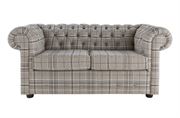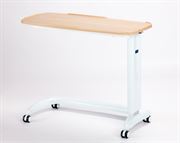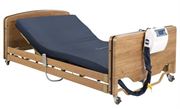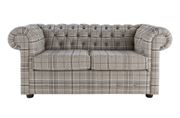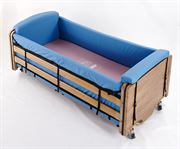The Difference Between a Nursing Home and a Care Home: A Guide to Elderly Care Options
When it comes to caring for the elderly, there are various care home facilities available to meet their specific needs. Two common types of care homes are residential care homes and nursing homes. It's important to understand the difference between these options to choose the right solution for your loved one. Here's a guide to help you navigate the different care options for the elderly.
Residential Care Homes
Residential care homes cater to individuals who can no longer live independently but don't require 24-hour nursing care. These facilities provide both respite care and long-term support which includes daily activities, such as bathing, dressing, and eating plus often have entertainment and communal spaces for socialising. Residential care homes prioritise making daily life as easy and comfortable as possible for older adults.
Nursing Homes
Nursing homes are suitable for elderly individuals with specific medical conditions or disabilities that require round-the-clock medical care. These facilities provide 24-hour nursing support, ensuring greater peace of mind for both residents and their families. Nursing homes are equipped to assist older adults who may be more vulnerable or have significant difficulties with daily life functions, such as bathing, dressing, and eating.
Additional Care Home Options
In addition to residential care homes and nursing homes, there are several other care home options available, including:
Retirement communities
Retirement communities or villages differ from traditional care homes as residents usually buy or rent their properties on-site, allowing for a higher level of independence. While these communities aim to provide safety and prevent loneliness among the elderly, additional support services such as in-home care can be offered if needed.
Extra care housing
Extra care housing offers a balance between retirement communities and care homes. Residents live in self-contained flats or small houses while receiving personalised support, such as assistance with meal preparation and other daily tasks.
Hospices
Hospices specialise in end-of-life care for individuals with terminal conditions. These facilities provide medical and emotional support to ensure comfort and reduce suffering during the final stages of life.
The decision of where to place an elderly loved one is a difficult one. There are many factors to consider, such as the individual's needs, preferences, and budget. By understanding the different care options available, you can make an informed decision that is best for your loved one.
At Renray Healthcare, we provide a wide range of healthcare furniture for all types of facilities including care homes and nursing homes. For more information about our care furniture and other products we stock at Renray Healthcare please call us on 01606 593 456 or email us at info@renrayhealthcare.com.


